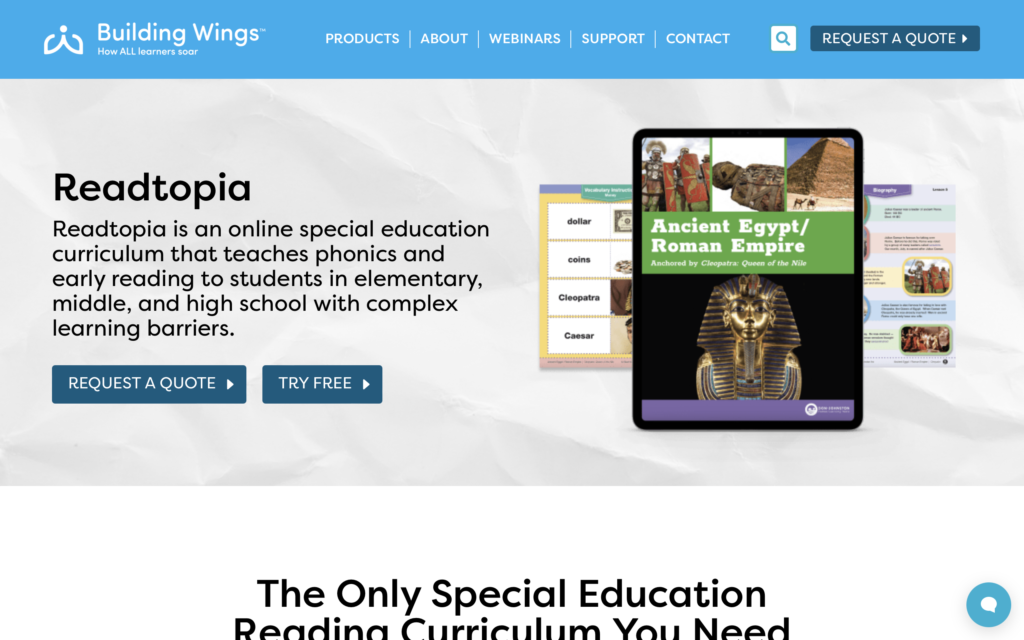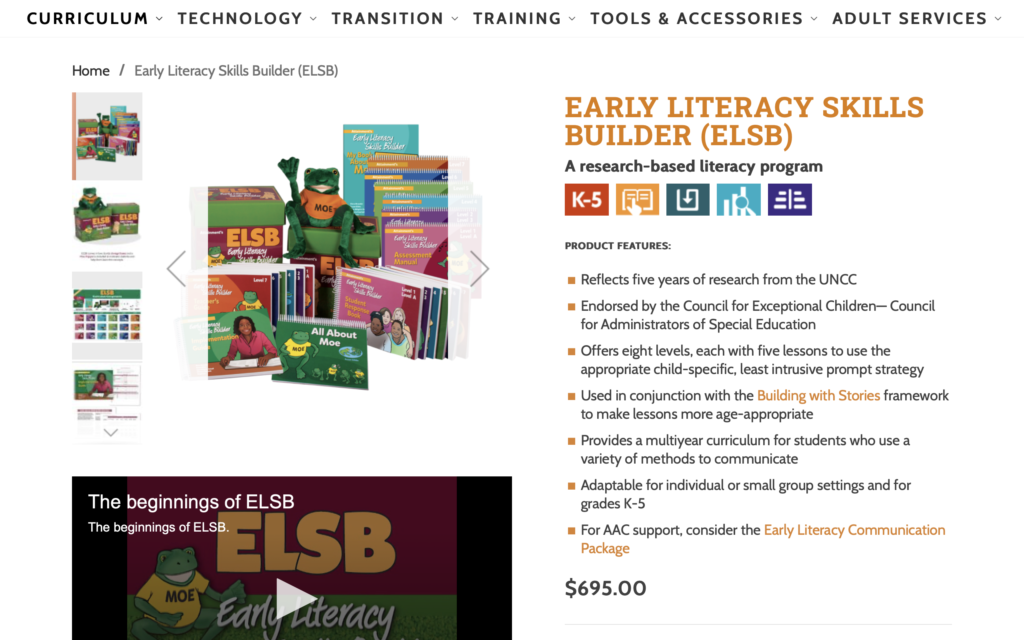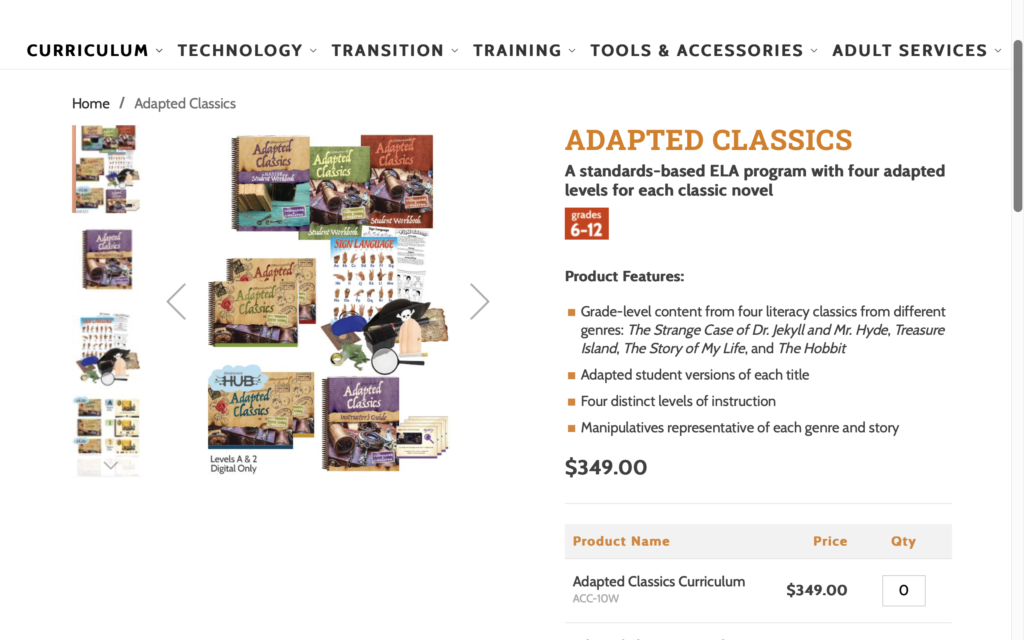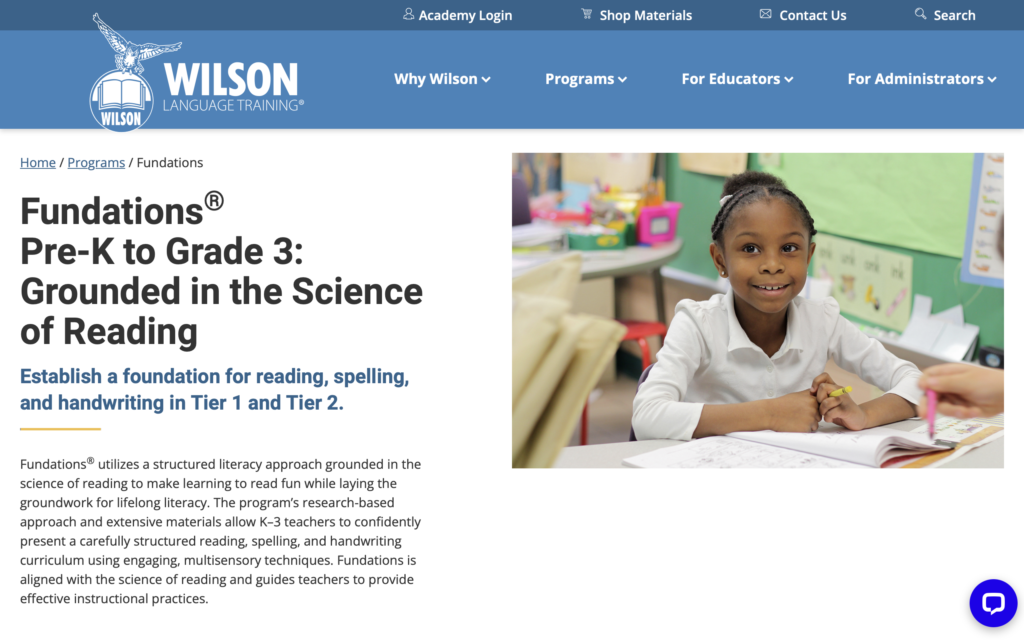When it comes to supporting struggling learners in the realm of English Language Arts (ELA) and literacy skills, special education teachers need comprehensive and effective curricula designed to meet their students’ unique needs. In this blog post, we will explore five outstanding ELA curricula that have proven to be highly beneficial for special education classrooms.
These curricula not only offer engaging content but also provide differentiated instruction, multisensory approaches, and comprehensive support to help struggling learners succeed. Let’s dive into the details of each curriculum in no particular order and discover how they can transform ELA instruction for students with special needs.

Readtopia by Building Wings is a research-based ELA curriculum that engages students through real-world, high-interest content. It provides differentiated instruction, scaffolded support, and multimedia resources to help struggling learners develop reading comprehension, vocabulary, and critical thinking skills. With its interactive features and flexible implementation options, Readtopia ensures that students with diverse abilities can actively participate in ELA lessons and build confidence in their reading abilities.

Early Literacy Skills Builder (ELSB) by Attainment is specifically designed for students with significant cognitive disabilities. This curriculum focuses on early literacy skills such as letter recognition, phonemic awareness, and basic sight words. ELSB provides hands-on activities, visual supports, and repetitive practice to help students develop foundational reading skills. With its systematic approach and adaptive materials, ELSB empowers special education teachers to support their students’ literacy growth from the earliest stages. This curriculum is perfect for kindergarten literacy skills and literacy skills for preschoolers.

Attainment’s Adapted Classics is a unique ELA curriculum that brings the world of classic literature to students with special needs. It offers simplified adaptations of well-known novels and stories, making them accessible and engaging for struggling learners. Through Adapted Classics, special education teachers can introduce literary elements, comprehension strategies, and critical thinking skills while nurturing a love for literature. This curriculum provides inclusive materials, interactive activities, and extensive support to help students explore the beauty of classic literature.
Unique Learning Systems by N2Y is a comprehensive curriculum that encompasses various subject areas, including ELA, for students with complex learning needs. It offers adaptable lessons, interactive activities, and differentiated materials to meet the diverse abilities and interests of students. The literacy skills component of Unique Learning Systems focuses on developing language skills, reading comprehension, writing, and communication. With its rich resources and personalized learning options, this curriculum empowers special education teachers to provide meaningful development of literacy skills instruction to struggling learners.
Learn more about how I plan for N2Y in this blog post.

Fundations by Wilson Language is a systematic and explicit phonics and spelling program designed to support students with dyslexia and other reading difficulties. It provides a structured approach to phonemic awareness, phonics, and word study, helping students develop decoding and encoding skills. Fundations incorporates multisensory techniques, including tapping and handwriting, to reinforce letter-sound connections and improve reading fluency. By implementing Fundations, special education teachers can equip struggling learners with the foundational skills necessary for reading success in pre-literacy skills.
Incorporating effective ELA curricula is essential for special education teachers seeking to empower struggling learners with the literacy skills and confidence needed to navigate the world of literacy. The five curricula highlighted in this blog post—Readtopia, ELSB, Adapted Classics, Unique Learning Systems, and Fundations—provide special education teachers with comprehensive resources, differentiated instruction, and inclusive materials. By leveraging these curricula, teachers can create engaging, accessible, and impactful literacy skills experiences that unlock the full potential of their students with special needs.
All of these curricula have six early literacy skills:
Read more about how I adapt curriculum to meet the needs of all learners.
Instagram | TeachersPayTeachers | Facebook | Boom Learning Library
What are you looking for?
COPYRIGHT © 2025 Full SPED Ahead